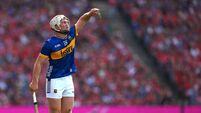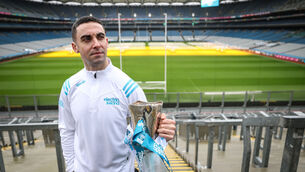The Kieran Shannon Interview: Seoirse Bulfin on riding shotgun to Davy Fitz

On the very first page of Davy Fitzgerald’s book, he’s there, because, invariably, he’s there on the sideline too. At All Costs opens with the closing moments of the 2018 All-Ireland quarter-final in Páirc Uí Chaoimh.














